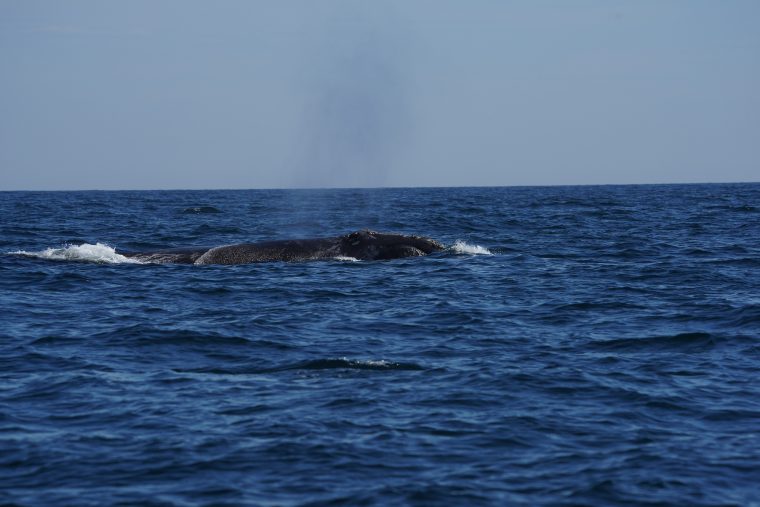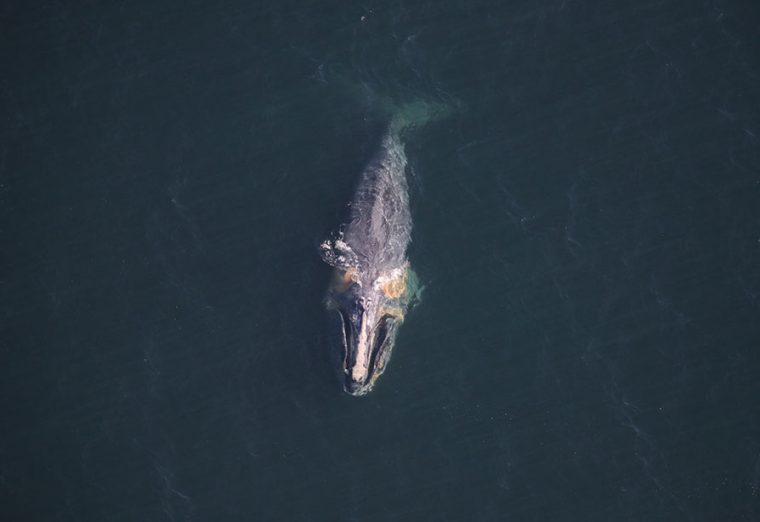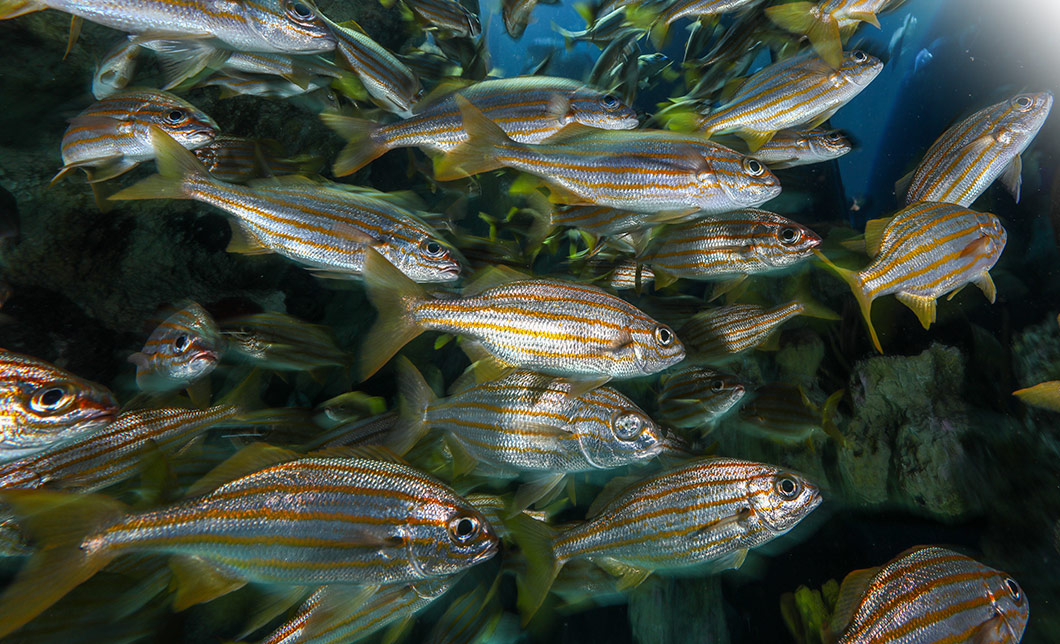He is the third calf of Dragon, another severely entangled whale assumed dead of similar injuries

BOSTON, MASS. (October 16, 2020) — An entangled North Atlantic right whale in extremely poor condition with large lesions on its body has been identified as a four-year-old male by scientists at the Anderson Cabot Center for Ocean Life at the New England Aquarium.
Tragically, the right whale team identified this whale, seen off Sea Bright, N.J., by a whale watch boat on Oct. 11, as the son of Dragon, another severely entangled whale who was observed in late February off Nantucket with a buoy lodged in her mouth. She is not expected to have survived her life-threatening injuries, according to the Aquarium team.
“To have two members of the same right whale family become severely entangled in the same year highlights the entanglement threat that right whales are facing every day,” said Amy Knowlton, a senior scientist with the Aquarium’s right whale team, which did a careful match of the four-year-old whale in New Jersey—identified as Catalog #4680—by cross-checking images from the Aquarium-maintained Right Whale Catalog. This whale was last seen in the Gulf of St. Lawrence in Canada on June 26 and again on July 7. NOAA (National Oceanic and Atmospheric Administration) officials are trying to work on a disentanglement plan.
“Finding this latest case of yet another right whale entangled in fishing gear demonstrates, again, the need for quick, decisive changes to how fisheries operate,” said Peter Corkeron, a senior scientist and chair of the Kraus Marine Mammal Conservation Program at the Aquarium. “The current lack of effective action is a choice, and it’s choosing extinction for this species. We can do better and we must.”
In late February, an aerial team of scientists was dismayed to see Dragon, a 19-year-old reproductive female right whale, with a buoy lodged into the right side of her mouth. She was emaciated, with unhealthy looking skin. The buoy appeared to prevent her mouth from closing, which Aquarium scientists thought was likely the main cause of her terrible condition.
Dragon (Catalog #3180) was well-known to the New England Aquarium team. She had given birth three times, first at the age of 7. That calf died of unknown causes within a week of its first sighting. Dragon went on to give birth again just two years later. The third calf, born six years later in 2016 off the coast of Georgia, had not officially been catalogued by the Aquarium’s right whale team until this past August. This is the whale now in peril off New Jersey.
The young whale spotted on October 11 was difficult to match due to the physical effects of the entanglement and the whale not lifting his head far out of the water. Photos from Nick Hawkins, a photojournalist who has been documenting right whales in the Gulf of St. Lawrence since 2018, were essential for the Aquarium scientists making the match.
“The Right Whale Catalog curators recognized the importance of matching the entangled animal to a known individual because the information feeds our knowledge of these whales’ life histories and entanglement demographics,” said Marianna Hagbloom, research assistant with the Aquarium’s right whale research program.
Entanglements can occur anywhere, illustrating the need to implement broad-scale changes to fishing gear quickly. Aquarium scientists have been studying sustainable fishing practices in collaboration with fishermen to reduce entanglements in gear.
“To learn of yet another entanglement that will lead to a right whale’s demise is heart wrenching and frustrating because these cases are preventable,” said Knowlton who has worked on the Aquarium’s right whale research program since 1983. “Shifting to weaker ropes, implementing ropeless fishing especially offshore, and expanding closures are the tools at hand to address this threat.”
The Aquarium team has documented over 1,500 entanglements since 1980 and has observed a steadily increasing level of related severe injuries and deaths. In fact, 86.1 percent of right whales have been entangled at least once with more than half of them entangled twice or more, some as many as eight times over the course of their lives. These life-threatening entanglements are devastating to the species, which numbers only around 400 now.

MEDIA CONTACT:
Pam Bechtold Snyder, psnyder@neaq.org; 617-686-5068

